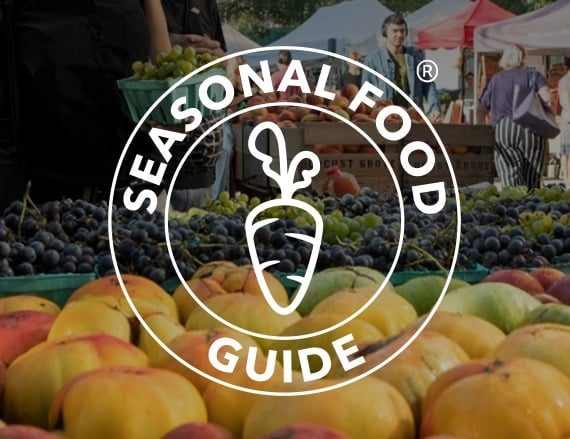When it comes to eating fresh and nutritious vegetables, nothing beats the flavor and quality of seasonal produce. Seasonal vegetables are not only packed with essential nutrients, but they also support local farmers and are more environmentally friendly. However, with the availability of almost any vegetable year-round, it can be challenging to determine what’s truly in season. Here’s a comprehensive guide on how to find seasonal vegetables and make the most of their goodness!
Benefits of Seasonal Vegetables
Before diving into the methods of finding seasonal vegetables, it’s essential to understand the benefits of consuming produce that is in season.
1. Superior Flavor
Seasonal vegetables are harvested at the peak of their ripeness, resulting in vibrant flavors and textures. They’re often more delicious compared to out-of-season varieties, providing a true taste of nature’s bounty.
2. Nutrient-rich
Since seasonal vegetables are allowed to fully ripen before harvest, they tend to have higher nutrient content. You can enjoy a wide array of essential vitamins, minerals, and antioxidants by choosing seasonal produce.
3. Support Local Agriculture
By selecting seasonal vegetables, you support local farmers and contribute to the sustainability of the agricultural community. It’s a great way to strengthen your local economy and reduce the carbon footprint associated with long-distance transportation.
4. Environmental Sustainability
Seasonal vegetables are more likely to be grown using traditional farming methods, resulting in reduced reliance on chemical fertilizers and pesticides. This promotes environmental sustainability and biodiversity.

Credit: www.telluride.com
Methods to Find Seasonal Vegetables
Now that we understand the advantages of seasonal vegetables, let’s explore some effective methods for finding them:
1. Visit Local Farmers’ Markets
Local farmers’ markets are a treasure trove for seasonal vegetables. Farmers sell their fresh produce directly to consumers, allowing you to access the finest seasonal varieties while engaging with the local farming community.
2. Join A Community Supported Agriculture (csa) Program
CSA programs offer members a weekly share of locally grown produce. By becoming a member, you can enjoy a diverse selection of seasonal vegetables that are harvested at their peak and delivered directly to your community.
3. Consult Seasonal Produce Calendars
Many regions have seasonal produce calendars that provide a comprehensive guide to what vegetables are in season during specific months. These calendars can be found online or obtained from local agricultural extension offices.
4. Establish Relationships With Local Farmers
Building relationships with local farmers can lead to valuable insights about what’s currently in season. They can provide firsthand knowledge about the availability of specific vegetables and even recommend new varieties to try.
5. Grow Your Own Vegetable Garden
Cultivating your own vegetable garden enables you to grow seasonal vegetables according to your local climate and conditions. This hands-on approach allows you to savor the joy of harvesting and enjoying truly fresh, seasonal produce.
Popular Seasonal Vegetables
While the availability of seasonal vegetables varies by region, there are certain types of produce that are commonly found in abundance during specific seasons:
| Season | Popular Seasonal Vegetables |
|---|---|
| Spring | Asparagus, Artichokes, Spinach, Peas, Radishes |
| Summer | Tomatoes, Zucchini, Bell Peppers, Corn, Cucumbers |
| Fall | Pumpkins, Sweet Potatoes, Brussels Sprouts, Butternut Squash, Kale |
| Winter | Beets, Carrots, Winter Squash, Kale, Swiss Chard |

Credit: foodprint.org
Frequently Asked Questions For How To Find Seasonal Vegetables: A Guide To Locating Fresh, Local Produce
How Can I Find Seasonal Vegetables Near Me?
To find seasonal vegetables near you, check out local farmers markets or use online directories that connect you with local farms.
Why Is It Important To Eat Seasonal Vegetables?
Eating seasonal vegetables ensures that you consume produce at their peak freshness and nutritional value, promoting a healthy diet.
What Are The Benefits Of Eating Seasonal Vegetables?
Seasonal vegetables offer a range of benefits, including higher nutrient content, better taste, reduced environmental impact, and support for local farmers.
Are Seasonal Vegetables More Expensive?
Seasonal vegetables are often more affordable due to reduced transportation costs, helping you save money while staying healthy.
Conclusion
Embracing seasonal vegetables not only enhances your culinary experience but also promotes healthier eating habits, supports local agriculture, and contributes to a more sustainable food system. By following the methods mentioned above and being mindful of popular seasonal varieties, you can enjoy a diverse array of fresh, flavorful vegetables while celebrating the changing seasons.
So, go ahead and immerse yourself in the delightful world of seasonal vegetables, and let the natural flavors and nutritional benefits enrich your diet and overall well-being.
